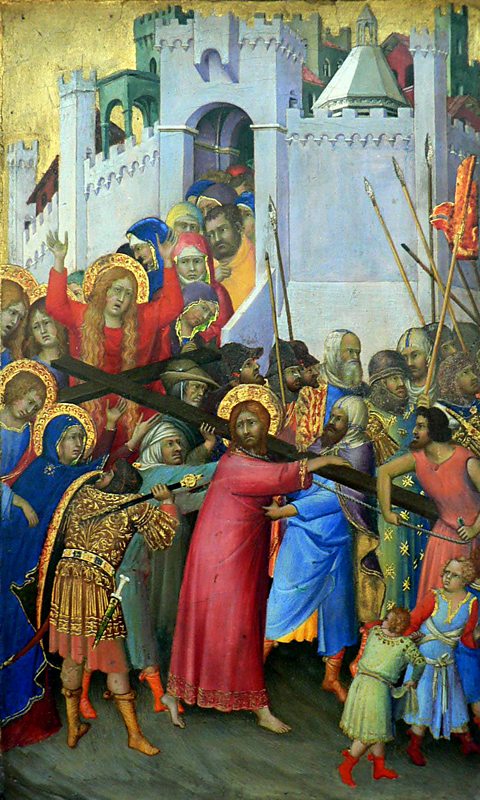
Consider Miriam of Magdala, or Mary Magdalene as we are inclined to refer to her. For centuries she was wrongly considered the "fallen woman" in Jesus' circle. During the Middle Ages Mary Magdalene was regarded as a repentant prostitute or promiscuous woman reputation not supported by any of the four canonical gospels. Of course Jesus Christ Superstar perpetuated this misogynistic interpretation of Mary and the bestseller novel The Da Vinci Code has her in a sexual relationship with Jesus. Even Lady Gaga has got in on the conspiracy in her song Judas.
I'm in love with Judas
In the most Biblical sense
I am far beyond repentance
Fame hooker, prostitute wench, vomits her mind...
Give the poor woman a break! In fact, Mary is mentioned a dozen times in the gospels more than most of the disciples. Jesus heals her of "seven demons" according to Luke, which may have been a way of saying that she suffered from some form of mental illness. She was loyal to Jesus to the end, part of his circle of followers, and present at the crucifixion. In John's account of the morning of the resurrection it is this Mary who was first to discover the empty tomb and first to encounter the Risen Christ, although in her grief she mistakes him for the gardener.

Mary Magdalene has deserved better treatment through the ages and a soon-to-be-released film might have helped. The actors are promising with Rooney Mara as Mary and Joaquin Phoenix as Jesus. But reviews suggest that they are respectful of their characters to the point of robbing them of any vitality. The Guardian review offers this insight of what it dubs an "apostlemance":
The drama plausibly suggests that Mary was a fiercely intelligent, resourceful woman who rejected the male norms of marriage and children laid down for her, and insisted on following Jesus. This was what caused her to be (at least initially) condemned as mad or possessed: it is entirely convincing. When she takes up her new position among the apostles, the film suggests that she does indeed become a favourite pupil, permitted à deux confidences on hillsides. But all this means for Mary is doing an awful lot of enlightened gazing at Jesus, who in turn does a good deal of infinitely knowing smiles back at her, while their dialogue is muted and restrained.
Ah well. On Easter morning we can give a respectful and grateful thought to courageous Mary Magdalene.
Why do we feel the need to sexualize Mary in this way? Maybe develop a biblical #metoo movement? Should we give more attention to the women in Jesus' circle?
No comments:
Post a Comment